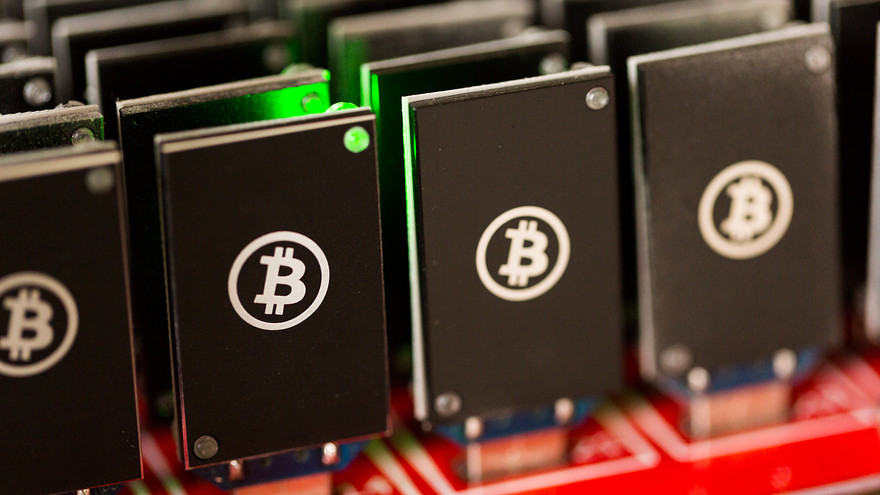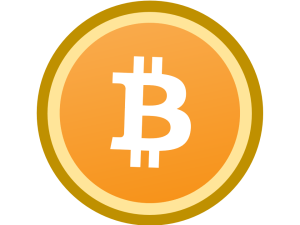It has the potential to disrupt the financial services industry — changing how we trade financial securities, eliminating the delays and wire fees that accompany international payments, opening bank records to the easy scrutiny of regulators and the public, advocates say.
It could ensure transparent and fair elections in the developing world.
It could even help certain Central American countries, where reliable records are rare, track things like land ownership.
What is this technology?
It’s called the blockchain, and it’s the digital ledger that forms the backbone of bitcoin.
Much ink has been spilled about the blockchain’s potential for disruption. But the technology — which first emerged in 2009 — is still in its infancy, and there are some key obstacles that engineers must overcome before it can be used on a larger scale.
What is the blockchain?

You can’t reach out and touch a bitcoin. It doesn’t exist in the physical world.
A bitcoin is just a piece of data stored on the blockchain.
The blockchain differs from conventional databases in a few important ways. Instead of storing data in one central location, it distributes it among a network of users running the bitcoin software. A complete history of every bitcoin transaction is stored on the blockchain, and all of these recorded transactions are open to public scrutiny.
Before a bitcoin transaction is approved and processed by the network, it is verified using a cryptographic algorithm that checks the transaction against the histories stored on every computer in the network. This process is complex, but it has one big advantage: it makes the blockchain very difficult to hack, advocates say.
Established companies are interested in the blockchain because it can clear transactions almost instantly and eliminate intermediaries from financial transactions, while offering both parties a high degree of transparency and security.
Some enthusiasts envision a world in which versions of the blockchain — or some other blockchain-inspired protocol, but built on a unique foundation — will become the universal protocol that underpins our entire financial system.
Cryptobonds
Overstock.com OVER, +5.63% a large U.S. e-commerce company based in Salt Lake City, is already testing the technology’s limits. The retailer has built its own trading system on top of the blockchain, and early in June announced that it intends to offer $25 million in so-called cryptobonds that will trade on the platform.
The experiment is part of the company’s larger exploration into the innovative potential of cryptocurrency, which its CEO, Patrick Byrne, calls “Medici.” So far, Byrne is the only investor in the bonds. But the company says it anticipates announcing more buyers in the near future.
The trading platform, a company representative says, offers same-day settlement for trades — a process that typically takes three days, using conventional market infrastructure.
“Those functions can be accomplished more easily, far more extensively, and with far less risk of corruption through the world of crypto technologies that are emerging,” Byrne said.
International Payments
Ripple Labs, the creator of the Ripple payments protocol, has built a platform that is similar to — and, its creators say, inspired by — the blockchain.
Ripple’s platform essentially provides a link between corporations that need to make international payments with investment banks and trading firms who are willing to put up the foreign currencies required to make those payments.
The system will save companies money on expenses like wire fees, interest payments and the opportunity cost of tying up capital in foreign bank accounts, says Patrick Griffin, an executive vice president at Ripple Labs. The institutions providing the capital will profit by charging a spread.
”Big corporates are floating cash and opening credit lines all over the world to meet their payment requirements,” Griffin said. “[Ripple] gives them an opportunity to repatriate all of that cash flow, and outsource it to a trading firm or an investment bank that has a lower cost of capital and could put up that cash.”
The company recently raised a $28 million venture round from a group of large investors, including the CME Group, which operates the Chicago Board of Trade — one of the world’s largest exchanges for financial derivatives.
Moving beyond
Since the technology first emerged, an international community of programmers has been constantly revising and improving the blockchain’s code. The 10th iteration of the blockchain was released in February. Since 2009, nearly all the original code has been rewritten.
And Overstock isn’t the only established company exploring how the blockchain will fit into its business. Nasdaq OMX Group NDAQ, +0.55% said in May that it is exploring how it could incorporate the blockchain into its market for private shares.
“People understand that the technology needed to mature,” said David Johnston, chairman of the Factom Foundation, another startup building its own blockchain-inspired protocol. “Blockchain 1.0 was all the payments stuff — now we’re moving beyond that.”
Obstacles
Large databases can require a massive amount of computing power to function efficiently. Typically, that power comes from a collection of servers stored in a warehouse somewhere.
In contrast, the blockchain is powered jointly by every computer running the software — and, most critically, by so-called bitcoin miners, who use powerful computers to solve complex cryptographic puzzles and unlock new caches of bitcoins. These caches are known as “blocks.” Hence, the term blockchain.
This decentralization of data — one of the aspects that enthusiasts find most exciting about the technology — is also a major vulnerability.
“The biggest obstacle is scalability,” said Ripple’s Griffin.
While the blockchain can theoretically handle up to seven transactions a second, in reality, that number is closer to three or four, said Jonathan Mohan, who works with BitcoinNYC, a networking group for bitcoin professionals.
Visa’s payment processing system, known as VisaNet, can handle more than 56,000 transactions per second, according to a company spokesman.
A representative from Overstock.com says the company is working on ways to improve its platform’s capacity for processing transactions. But as of now, the technology is better suited for small, private offerings, a company representative said.
Click on the bitcoin logo below to buy, use or accept bitcoin. Unocoin is India’s most popular bitcoin wallet.
To read the bitcoin white paper, visit: https://bitcoin.org/bitcoin.pdf








